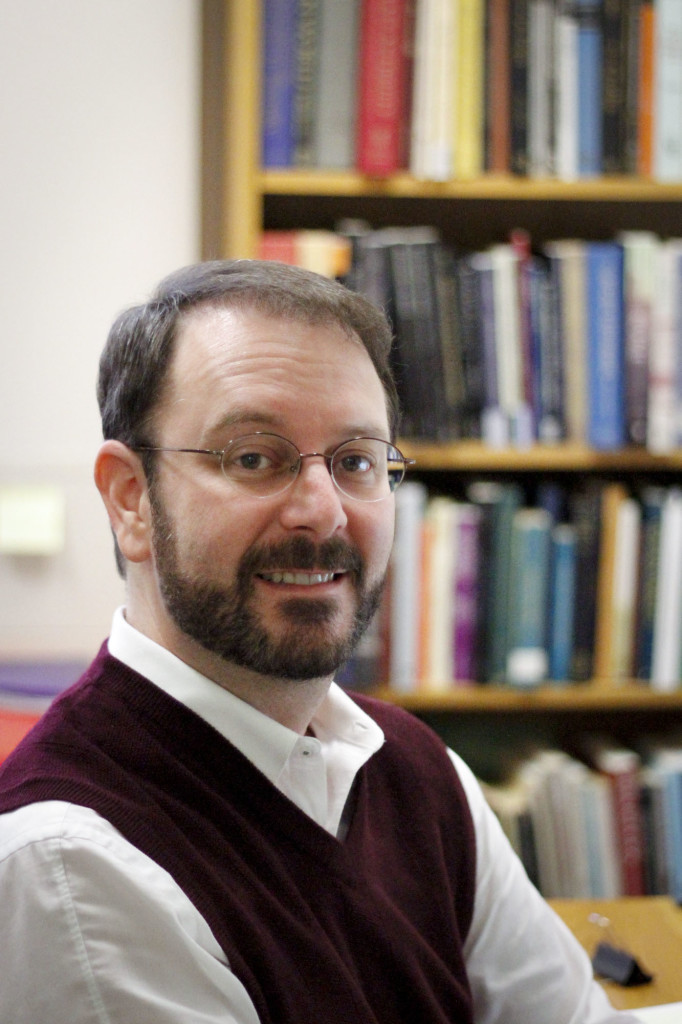
Dr. Daniel Peterson of Matteo Ricci College and the Department of Theology and Religious Studies.
After Seattle University faculty’s inability to join the Service Employees International Union earlier this year, adjunct faculty unionization remains an important topic of discussion
on campus.
On one side of the debate is Matteo Ricci professor and theologian Dr. Dan Peterson, who believes that Seattle U has a responsibility as a Jesuit university to offer living wages to faculty members, regardless of whether they are tenured. Below, Peterson discusses the reasoning behind his advocacy for a union, as well as his personal experiences both as an adjunct professor and as a salaried SU employee.
Responses have been edited for length.
Q: Why does the idea of forming a faculty union at Seattle U matter to you?
A: When I started at Seattle University in 2009 as a full-time adjunct faculty member teaching seven courses, I was initially offered a salary that was just over $20,000 a year. That’s not a living wage, and it’s not too high above the poverty line in King County. So I have dealt with the issue of equitable salary since my beginning at the university. I believe [teaching] is my vocation, and I love what I do. But since I’ve come to Seattle University, it’s been very difficult to make a living at what I do, given the fact that I have been earning such a low wage. My situation has since improved, thanks to some really wonderful administrators, department chairs, and deans who have helped me to get a higher salary, but it could be better. To this day, I still work outside of my teaching. I’m a theologian, so I teach in churches almost every weekend of the year to support myself, and it’s undermined my quality of life. I do not believe there is justice being served on this campus when it comes to the equitable pay of faculty members who give their lives to teaching as a vocation, and as a service to students. I support unionization.
Q: How do you respond to the resistance to unionization at Seattle U?
A: For me, especially given my commitment to the Jesuit values and ideals of this university, I do not understand why Jesuits, or at least one Jesuit, have not been supportive of a union, or at least have not done more to make it so that faculty on this campus who are not tenured can earn a living wage. In the earliest documents of the Jesuit order, Ignatius and others made it clear that non-Jesuit faculty should be compensated fairly. Because of that, and because of the contemporary emphasis on social justice as an expression of faith and the order, I do not understand why the university upper administration and the president are so resistant to the idea of a union. To me it seems to be one of the only ways forward when it comes to equitable pay, and I see that as a social justice issue.
Q: What is your response to the arguments against unionization at Seattle U?
A: I think what the school administration has tried to do—and I laud them for this—is make some changes, at least relatively speaking, that improve the life of contingent faculty on campus and that give them a better salary. My conviction is that more changes and more necessary changes could be made and facilitated by a union on campus. The argument is going to be that the administration has already taken these issues into consideration, and has taken steps toward rectifying the situation. My response to that would be that enough steps haven’t been taken, and a union would help facilitate the process even more, ensuring the promotion of justice, which is so important to a university affiliated with the Jesuit tradition.
Q: Is there anything that you believe could be done at this point to move toward the establishment of a union?
A: Easy. Don’t suppress the vote. The president of the university invited us as contingent faculty to vote for or against the union, and then the legal team the university hired to take care of the situation suppressed our vote. So don’t tell us that we have a vote and then take our vote away. Where is the justice in that? My first thing would be to say, let the faculty vote stand. Let’s see what faculty wants on this campus as a way of promoting justice. That’s number one. Two: let’s have a bigger conversation about our commitments financially as a university. Let’s consider our priorities in light of our mission and our vocation as a university and assess where our money is going. Obviously, the mission of the university concerns the welfare and the advancement of its students. So what I’d like to see is a broader conversation about where the money is going, and imagine possibilities so that justice can be served, contingent faculty can earn a living wage, and students at the same time can continue to be the focus of the university. I think we can do better on this campus. And whether ultimately that means a union comes in, or we find other ways to provide more just and fair salaries to contingent faculty, I think we have to do something. I appeal to the conscience of those in power at this university to remember that the contingent faculty members on this campus are human beings. We put everything into our teaching, we do everything we can to help our students thrive, and we’d like to
thrive, too.
The editor may be reached at abever@su-spectator.com









Anna Harrison
Nov 24, 2014 at 8:45 pm
Jesuit universities that union bust: shame on you. Those of is who support non- interference should get together.